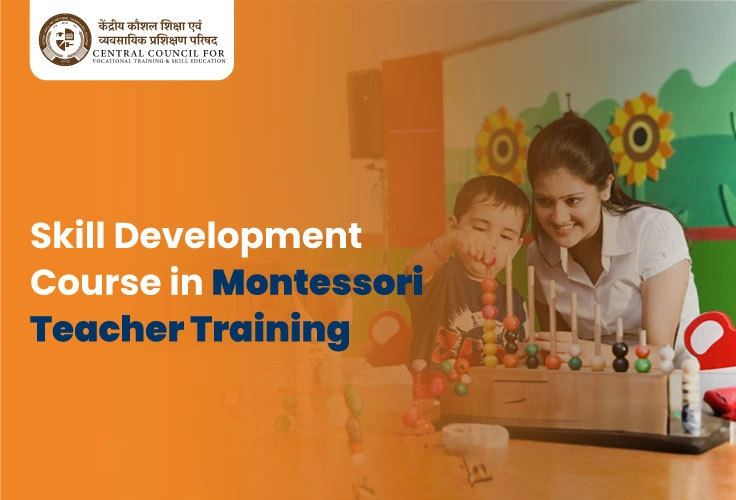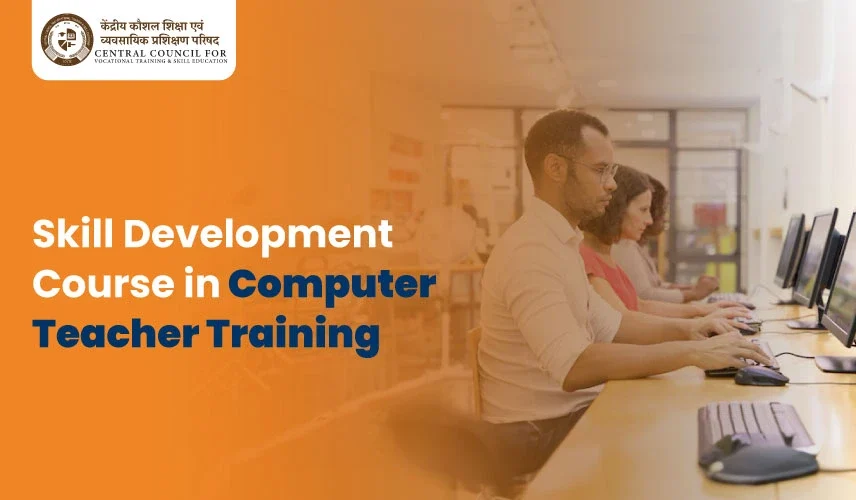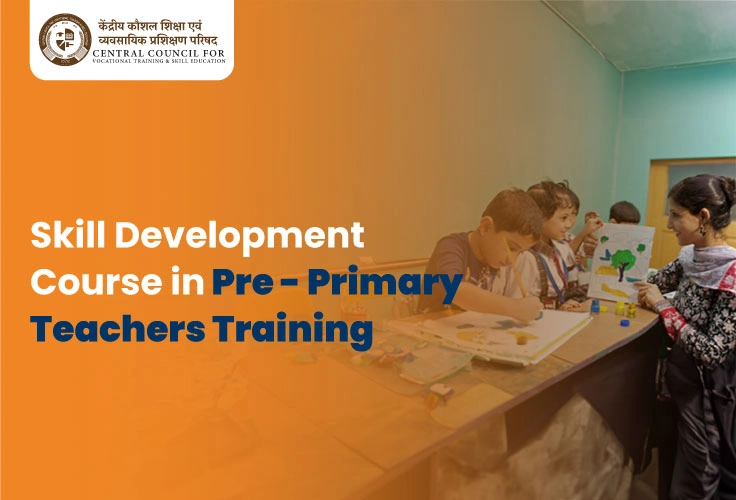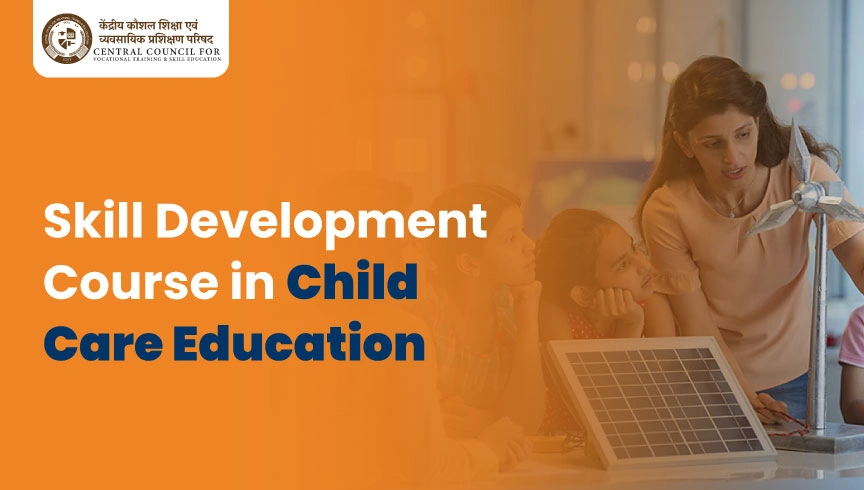- +91 8595350621
- info@ccvte.org
- C4/97B, Keshav Puram, Delhi-110035
Montessori Teacher Training

Skill Development Program in Montessori Teacher Training
The goal of a Montessori teacher training program is to give educators the know-how, abilities, and teaching strategies they need to use the Montessori method in the classroom. This approach, which was developed by Dr. Maria Montessori, places a strong emphasis on independent play, hands-on learning, and collaborative learning. It is child-centered in nature.
The rigorous, all-encompassing Montessori Teacher Training Program equips teachers to support children's autonomous, self-motivated learning. Through the integration of the Montessori method's philosophy and principles with practical application, educators may establish nurturing and effective learning environments that meet the unique developmental requirements of every student.
Why did you choose Montessori Teacher Training program from CCVTE?
After completing the course, students will possess the abilities required to be successful educators and successfully handle important issues at the elementary school level. To address the unique needs of children ages two to twelve, the Montessori Teacher Training program has been modified. The program's primary goal is to give graduates access to innovative teaching strategies, flexible learning environments, contemporary teaching techniques, and related skills.
To guarantee a full comprehension of Maria Montessori's educational ideals, the Montessori Teacher Training Courses curriculum offers a wide spectrum of instruction, including Diploma and Advance Diploma in Montessori Teacher Training and Certificate in Montessori Teacher Training level courses. Through the integration of both theoretical education and hands-on training, the program produces highly skilled Montessori teachers.
Syllabus
|
3 Months |
6 Months |
1 Year |
2 Years |
|
Foundation of Montessori Education |
Foundation of Montessori Education |
Foundation of Montessori Education |
Foundation of Montessori Education |
|
Child Development |
Child Development |
Child Development |
Child Development |
|
Practical Life Skills |
Practical Life Skills |
Practical Life Skills |
Practical Life Skills |
|
Sensorial Education |
Sensorial Education |
Sensorial Education |
|
|
Language Development |
Language Development |
Language Development |
|
|
Mathematics Education |
Mathematics Education |
||
|
Cultural Studies |
Cultural Studies |
||
|
Art and Creativity |
Art and Creativity |
||
|
Music and Movement |
Music and Movement |
||
|
Classroom Management |
Classroom Management |
||
|
Advanced Montessori Methodologies |
|||
|
Special Needs Education |
|||
|
Parent and Community Engagement |
|||
|
Research and Development |
|||
|
Internship and Practicum |
Career Opportunities
- Montessori Teacher
- Curriculum Developer
- Teacher Trainer
- School Administrator
- Parent Educator
- Education Consultant
- Special Education Teacher
Top Hiring Companies
- The Montessori Schools Group
- Klay Schools
- Little Elly
- EuroKids
- Little Millenium
- The Shri Ram Early Years (TSEY)
- Step by Step Nursery School
- Mother’s Pride
- Little Pearls
- Kidz
- EuroKids
Other Education Courses Provided by CCVTE
Frequently Asked Questions
Graduates can pursue careers as Montessori teachers in preschools, primary schools, or childcare centers. They may also work as Montessori consultants, educational coordinators, or trainers, and have opportunities for advancement into administrative or specialized roles within the Montessori education field.
Montessori Teacher Training is crucial because it provides educators with a deep understanding of Montessori principles, such as child-centered learning, individualized instruction, and the prepared environment. This training equips teachers with the skills to effectively implement Montessori methods and support the developmental needs of young children.
The curriculum typically includes Montessori philosophy, child development, classroom management, curriculum design, and the use of Montessori materials. It also covers practical teaching methods, observation techniques, and assessment strategies.
Yes, we provide Montessori Teacher Training programs that include practical experience such as classroom observations, student teaching, or internships to provide hands-on experience in a Montessori setting.
Completing Montessori Teacher Training provides a thorough understanding of Montessori educational principles and practices, enhances teaching skills, and prepares educators to create effective learning environments. It also opens up diverse career opportunities within Montessori and early childhood education settings.



